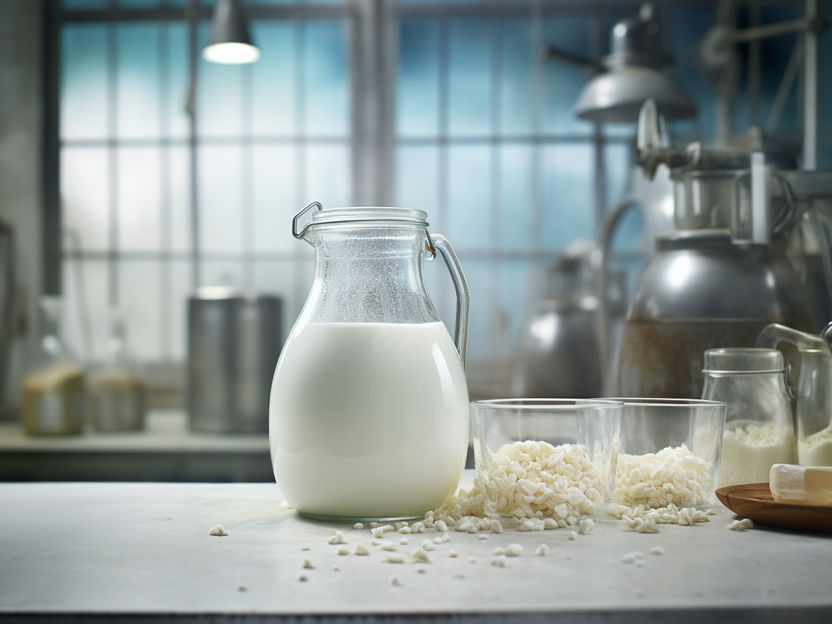Lab milk under the microscope: sensible substitute or premature euphoria?
Advertisement
Meat from the petri dish or insects from the chip bag: In the search for
new ways to feed a steadily growing world population, researchers
have been experimenting for years with alternatives to conventional food production.

Climate change is also increasingly bringing sustainable nutrition into focus: Droughts are already causing
crop failures, and livestock farming is a not inconsiderable contributor to
greenhouse gas emissions. Some companies are now working on producing milk and dairy products in the
laboratory. In this interview, dairy engineer Frank Feuerriegel explains the process, called
precision fermentation, and whether and if so, what future lab milk will have.
How is so-called lab milk produced?
The processis called precision fermentation. It is a genetic engineering advancement of
fermentation, in which microorganisms convert organic substances.
In precision fermentation, these microorganisms are genetically modified. This enables them to produce
any complex organic molecules. The process for milk specifically uses the
gene scissors Crispr-Cas. In this process, the enzyme Cas9 is introduced to the target genome with a specific
RNA sequence, thereby unraveling the DNA double strand in the organism of origin
. A different DNA can then be inserted at this separated site.
This sounds rather complicated....
Now it gets simpler: For laboratory milk, gene sequences from
cows are inserted into yeast cells using the procedure described. These sequences are responsible for the production of the proteins in the milk
.
The genetically modified yeast cells can produce milk proteins such as caseins and whey proteins
by fermentation as part of their newly acquired
metabolic properties. These milk proteins formed by yeasts are mixed with other ingredients such as
water, sugar, fats, vitamins or minerals and processed into substitute milk or
substitute milk products.
Lab milk would thus be a genetically modified product, wouldn't it?
Yes, within the EU, new breeding methods such as the Crispr-Cas gene scissors fall under
genetic engineering legislation.
How do you assess the future of lab milk?
As uncertain for the time being, since no scientific data are yet available. For example,
we don't know whether the body can absorb nutrients from rennet milk as well as those from cow's milk.
There are no calculations on this yet, nor how energy and resource consumption compares
to products from animal production. Is rennet milk really more sustainable? What
are the environmental impacts of industrial production of rennet milk?
The figure of an 80 percent cost reduction compared with conventional
dairy production and processing is circulating, but so far many companies still have the
problem of even ramping up laboratory production to a commercially effective level.
In principle, it is still an open question whether rennet milk or genetically derived dairy products would be accepted by
consumers. That's assuming these products would even receive
approval in the EU - which is also still uncertain.
In America and India, they already have....
Yes, the first products are on the market in both countries. In the US, it started in 2016 with a
variant of ice cream. Since 2019, the number of startups in this area has risen sharply, including
in Germany. Food companies are also already investing here. In principle, I think it is
good that the Crispr-Cas process is being further researched because it holds opportunities for agriculture and
the livestock sector to develop more efficient food production processes. It is not yet possible to say what
will ultimately be successful.
Note: This article has been translated using a computer system without human intervention. LUMITOS offers these automatic translations to present a wider range of current news. Since this article has been translated with automatic translation, it is possible that it contains errors in vocabulary, syntax or grammar. The original article in German can be found here.
































































